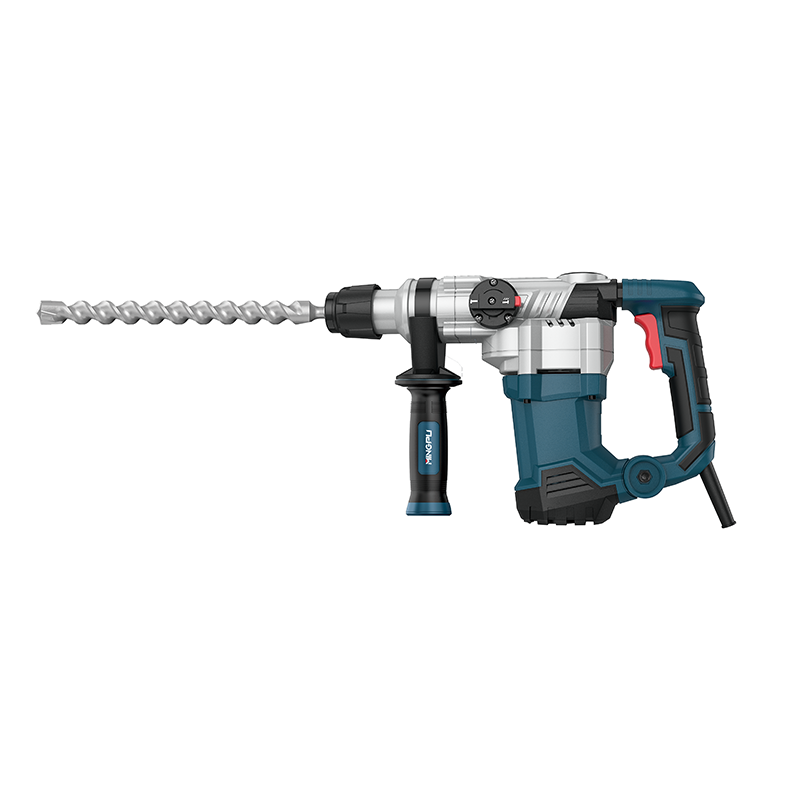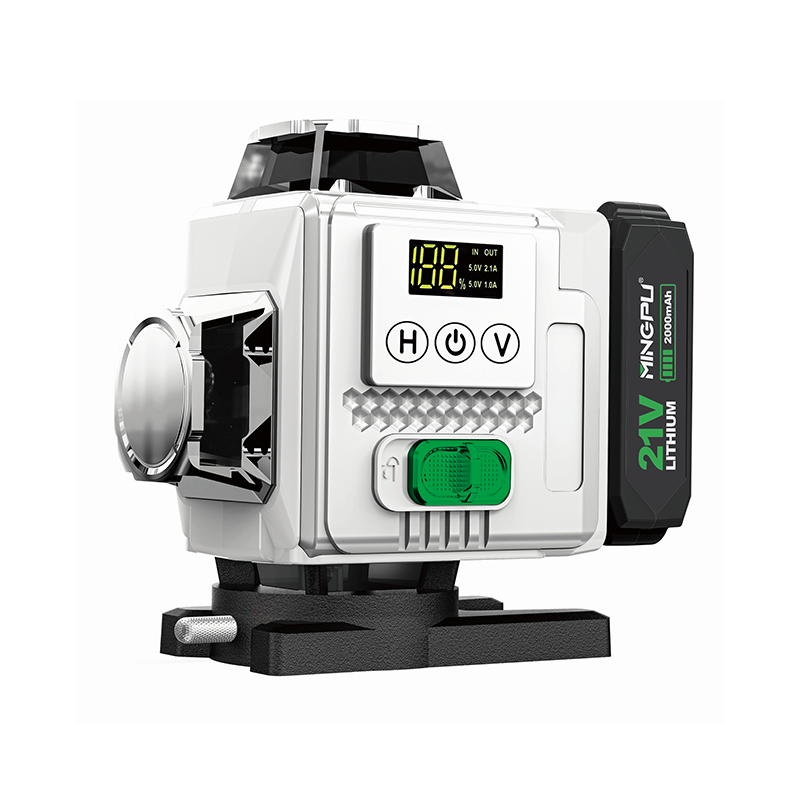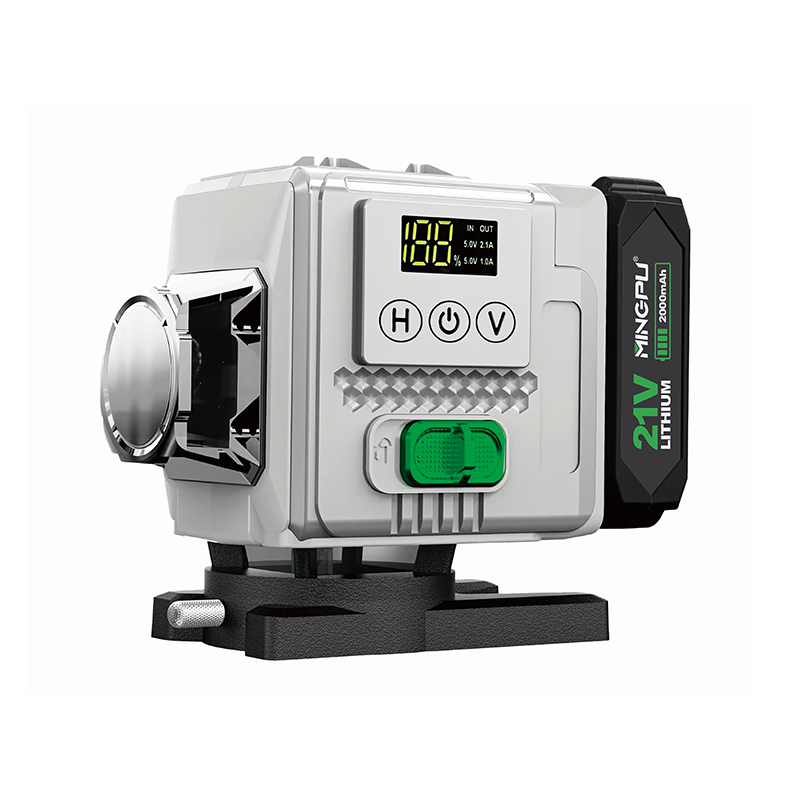Views: 0 Author: Site Editor Publish Time: 2025-07-08 Origin: Site











The debate between corded and cordless power tools is endless. Which one is right for your DIY workshop? Choosing the right tool is crucial for successful projects.
Corded power tools provide power without limits, while cordless tools offer portability and convenience.
In this post, we’ll break down the key differences and help you make an informed choice.

Corded power tools are electrical devices that require a constant connection to a power source. They typically come with a cord that plugs into an outlet, providing continuous energy for heavy-duty tasks. These tools include drills, saws, demolition hammers, and rotary hammers.
With corded power tools, you don’t have to worry about running out of battery. As long as there's power, you can keep working without interruptions. This is especially useful for long, continuous tasks.
Corded tools are ideal for demanding jobs like demolition or drilling through hard materials such as concrete. Demolition hammers and rotary hammers, for example, often have power ratings from 1300W to 3000W, making them powerful enough for tough projects.
These tools tend to last longer with proper maintenance. They are built to endure harsh working conditions, which makes them suitable for both professional and heavy-duty DIY use.
Corded tools are always ready for use. There’s no need to charge batteries or replace them, saving you time and hassle. As long as there’s a power outlet, you’re good to go.
The primary limitation of corded power tools is their range. You need to be close to a power outlet, which can be restrictive for large projects or outdoor tasks where outlets aren’t always available.
Long cords can become tangled or create clutter, making storage tricky. The cord may also pose a tripping hazard if not properly managed during use.
While corded tools are powerful, they lack the mobility that cordless tools offer. They are less flexible for projects that require frequent repositioning or work in tight spaces.
Cordless power tools are tools powered by rechargeable batteries, eliminating the need for a power cord. This makes them portable and ideal for use in places where electrical outlets are unavailable. Common cordless tools include drills, impact drivers, saws, and laser levels.
Since cordless tools don’t have a power cord, you can take them anywhere. They're perfect for mobile DIY projects or jobs in locations without nearby outlets. Whether you're working in the garage, on a ladder, or outdoors, you have the freedom to move around without worrying about plugging in.
Cordless tools are often lighter and more ergonomic than their corded counterparts. This makes them easier to maneuver, especially in tight spaces or when you need to work overhead. Their compact size makes them perfect for quick tasks and more intricate jobs, where precision and control are essential.
Many modern cordless tools come equipped with features that enhance usability. These include LED lights for better visibility in dark areas, variable speed controls for more precision, and ergonomic handles to reduce strain during prolonged use. These features add versatility, making cordless tools suitable for a wide range of DIY tasks.
Cordless power tools are great for smaller-scale projects, like home repairs, assembly, and light carpentry. When the tasks don’t require constant, heavy power, cordless tools provide the right amount of flexibility and ease. They’re especially helpful for occasional DIY users who need tools for non-demanding jobs.
The main downside to cordless tools is their limited battery life. While battery technology has improved, many cordless tools require frequent recharging, especially for extended use. Depending on the job, you might find yourself stopping to recharge mid-project, which can slow down work.
Cordless tools typically have less power than corded versions. Unless you invest in high-end battery-powered tools, you might notice a reduction in performance when tackling demanding tasks, like heavy demolition or drilling into hard materials. For projects requiring continuous, high power, a corded tool may be a better choice.
Battery replacement is another consideration. Over time, the battery life may degrade, and you’ll need to purchase additional batteries or charging stations. These costs can add up, making cordless tools more expensive in the long run, especially if you use them frequently for larger projects.

Corded power tools typically provide more consistent and higher power than cordless tools. For example, corded demolition hammers can reach power levels up to 3000W, making them ideal for heavy-duty tasks like breaking concrete or asphalt. In contrast, cordless drills and hammers, though convenient, may lack the power needed for such intense jobs. While they offer flexibility, they’re generally less suited for demanding tasks that require continuous power.
For tough jobs, corded tools are the way to go. These tasks demand continuous power and reliability, which corded tools provide. Demolition hammers, rotary hammers, and high-power saws are perfect examples. These tools can handle the heavy lifting that comes with tearing down walls, cutting through thick wood, or drilling into concrete.
Cordless tools shine in simpler DIY projects. If you're drilling holes in softwood, hanging pictures, or assembling furniture, cordless tools are the ideal choice. They're lightweight, easy to use, and allow you to move freely around your workspace. You won't have to worry about finding a nearby outlet or managing cords.
When working outdoors or in places where access to power is limited, cordless tools are more convenient. Since they rely on rechargeable batteries, you can use them anywhere—whether you're building a fence in the backyard or working on a car in the garage. No cords to untangle or manage, just grab and go.
Corded tools are built for long-lasting performance, especially in demanding environments. Their motors are designed for heavy use, making them a reliable choice for professionals and frequent DIYers. To keep them running smoothly, it’s essential to maintain the cord, clean the motor, and inspect the tool for wear and tear. Proper care can extend the tool's lifespan significantly.
While cordless tools are more convenient, their battery life is a major factor in their durability. Over time, batteries lose charge capacity and need to be replaced. Proper battery maintenance, like storing them correctly and avoiding overcharging, can help extend their lifespan. Using high-quality batteries can also ensure longer-lasting performance.
Corded power tools are usually more affordable, especially for models with high power ratings. They don’t require expensive batteries, which makes them cost-effective in the long run. On the other hand, cordless tools tend to be pricier due to the advanced battery technology and additional components required for mobility.
Cordless tools incur additional costs over time. You may need to replace batteries or purchase extra charging stations. Depending on the frequency of use, these costs can add up quickly. Corded tools generally have fewer ongoing expenses, aside from electricity. While their initial investment may be higher, they don't require regular battery replacements or special accessories.
Corded demolition hammers are perfect for heavy-duty tasks like breaking concrete or tearing down walls. These tools typically range from 1300W to 3000W in power, delivering impact forces between 15J to 22J. Such high power allows them to handle tough materials, making them a must-have for any demolition job. Their consistent power ensures you can work for long periods without worrying about power loss.
Rotary hammers are versatile tools ideal for drilling tough materials like concrete and masonry. Popular models offer power ratings between 1050W to 1500W, providing the necessary strength for a range of drilling tasks. Their ability to switch between drilling and chiseling makes them perfect for both construction and demolition projects.
Corded drills and saws are essential for continuous, high-demand tasks. These tools are built for heavy use and provide uninterrupted power, allowing you to drill holes or make precise cuts in materials like wood, metal, or concrete. Their high torque and constant power make them ideal for projects where reliability is key.

Cordless drills and impact drivers are lightweight and easy to handle, making them perfect for everyday DIY tasks. They're portable, so you can move freely around your workshop or home. Whether you're driving screws, drilling holes in wood, or assembling furniture, these tools offer the flexibility and convenience needed for most tasks.
Cordless saws offer convenience and flexibility for cutting tasks around the home or workshop. They’re great for making quick cuts in wood, PVC, or even thin metals. With no cords to manage, you can easily maneuver the saw into tight spaces or work outdoors without worrying about finding an outlet.
Cordless laser levels provide precision and portability for alignment and leveling tasks. Whether you're hanging shelves, installing cabinets, or leveling floors, these tools help ensure your work is straight and accurate. Their compact size makes them easy to carry, and the lack of cords allows for smooth, hassle-free operation.
The first step is identifying the type of DIY projects you'll be working on. Heavy-duty tasks like demolition or drilling through concrete require the consistent power of corded tools. For lighter projects, such as drilling into wood or assembling furniture, cordless tools offer the portability and flexibility needed.
Evaluate how much power your projects require. Corded tools generally provide higher and more consistent power. If you're dealing with high-wattage tasks (e.g., 1300W to 3000W for demolition hammers), corded tools are your best bet. For smaller jobs, cordless tools with lower voltage can still get the job done efficiently.
Consider whether you need mobility or constant power. Cordless tools shine when you need portability and convenience. If you're moving around different areas or working in places without power outlets, cordless tools are the way to go. But if your projects demand steady power and long durations, corded tools are more reliable.
When deciding between corded and cordless tools, think about both the initial cost and long-term investment. Corded tools tend to be more affordable upfront, especially for high-power models. However, cordless tools may come with additional costs for batteries and chargers, which need replacing over time. Factor in the total cost of ownership.
Look for features that can improve your efficiency and comfort. Corded tools often have higher torque and can handle tougher tasks. But cordless tools often offer added convenience, such as LED lights for visibility, ergonomic handles, and variable speed settings. Choose based on the specific features that best match your project needs.
When looking at corded demolition hammers, some competitor models stand out by offering advanced anti-vibration systems. These systems reduce the amount of vibration transferred to your hands, improving comfort during long sessions. Many competitors also bundle extra accessories like a variety of chisels (pointed and flat) and spare parts such as carbon brushes and grease tubes. These additional accessories enhance the tool's versatility and prolong its lifespan.
Competitors in the rotary hammer market have raised the bar with advanced speed control mechanisms. Some models allow you to adjust the speed precisely to match the material you're working with, ensuring more efficient and controlled drilling. Additionally, many competitor products emphasize durability, using high-quality motor casings and materials to extend the tool's life, even under harsh working conditions. These models are built to withstand heavy-duty tasks while offering flexibility in speed control.
In the cordless laser level category, competitors offer models with extended working ranges, allowing users to project laser lines over larger distances. These models are particularly useful for bigger projects where accuracy is essential. Many competitors also improve visibility in various lighting conditions, with brighter lasers and enhanced optical systems that ensure clear lines even in bright sunlight or dimly lit spaces. This makes them a great choice for both indoor and outdoor tasks, improving accuracy and ease of use.
Choosing between corded and cordless tools depends on your projects and workspace. Corded tools provide more power, while cordless tools offer portability. Both have advantages and limitations, so consider your needs carefully.
Keep tools in good shape by cleaning cords, caring for batteries, and regularly inspecting motors. Proper maintenance can extend their lifespan.
Check out our top-rated corded and cordless tools to find the best fit for your workshop needs.
